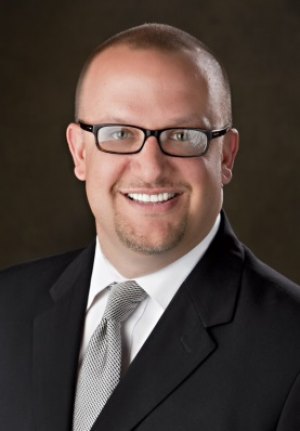Protecting Your Rights: The right to remain silent? Think again
The case involved a 1992 incident where petitioner Genovevo Salinas, voluntarily accompanied officers to a police station in Houston, Texas, where he freely answered some of a police officer's questions about a murder. He was not under arrest at the time. However, when questioned about whether ballistics testing would match his shotgun to shell casings found at the scene of the crime, Salinas fell silent, and was later arrested. At his murder trial in Texas state court, the prosecution used his failure to answer the officer's question as evidence of guilt, to which Salinas objected. He was ultimately convicted of the crime.
The high court's plurality argued that the Fifth Amendment is not a blanket right to remain silent:
To be sure, petitioner might have declined to answer the officer's question in reliance on his Constitutional privilege. But he also might have done so because he was trying to think of a good lie, because he was embarrassed, or because he was protecting someone else. Not every such possible explanation for silence is probative of guilt, but neither is every possible explanation protected by the Fifth Amendment. Petitioner also suggests that it would be unfair to require a suspect unschooled in the particulars of legal doctrine to do anything more than remain silent in order to invoke his "right to remain silent." But the Fifth Amendment guarantees that no one may be "compelled in any criminal case to be a witness against himself," not an unqualified "right to remain silent." In any event, it seems sadly clear that you can give up your Fifth Amendment right without even knowing it.
In their dissent, Justices Stephen Breyer, Ruth Bader Ginsburg, Sonia Sotomayor, and Elena Kagan, argued that, in fact, the Fifth Amendment "prohibits the prosecution from commenting on the petitioner's silence in response to police questioning" and that the plurality's conclusion was inconsistent with the Court's case law and its "underlying practical rationale."
"Since it is impermissible to penalize an individual for exercising his Fifth Amendment privilege when he is under police custodial interrogation,' the 'prosecution may not . . . use at trial the fact that he stood mute or claimed his privilege in the face of accusation,' wrote the dissent, citing Miranda v. Arizona, 384 U. S. 436, 468, n. 37 (1966).
"It is consequently not surprising that this Court, more than half a century ago, explained that 'no ritualistic formula is necessary in order to invoke the privilege'," wrote the dissent, citing Quinn v. United States, 349 U. S. 155, 164 (1955), and arguing that the very act of silence during any circumstance of police questioning is in itself an invocation of the already guaranteed Constitutional privilege of it.
"Circumstances, not a defendant's statement, tie the defendant's silence to the right. ... It is not any explicit statement, but instead the defendant's deeds (silence) and circumstances (receipt of the warnings) that tie together silence and Constitutional right. Most lower courts have so construed the law, even where the defendant, having received Miranda warnings, answers some questions while remaining silent as to others."
The dissent maintained that the Fifth Amendment right to silence in protecting one's self from self-incrimination cannot be invalidated by mere failure on the part of citizens to grasp the particulars of legal doctrine which followed long after the Amendment's ratification.
"The plurality says that a suspect must 'expressly invoke the privilege against self-incrimination.' But does it really mean that the suspect must use the exact words 'Fifth Amendment’? How can an individual who is not a lawyer know that these particular words are legally magic?" the dissent continued.
To a vast number of civil rights proponents, the very act of silence is a rightful exercise of the Fifth Amendment guarantee against self-incrimination, and which the Supreme Court has now relegated to a legal magic spell whose powers can only be effected by some "Abracadabra!" invocation. Many legal experts feel the Supreme Court's ruling is a perilous undoing of one of the most fundamental civil rights afforded criminal defendants in this country for over two hundred years: the right to be free from having one's silence used against them.
The dissent concluded:
The basic problem for the plurality is that an effort to have a simple, clear "explicit statement" rule poses a serious obstacle to those who, like Salinas, seek to assert their basic Fifth Amendment right to remain silent, for they are likely unaware of any such linguistic detail. At the same time, acknowledging that our case law does not require use of specific words ... leaves the plurality without the administrative benefits it might hope to find in requiring that detail.
Far better, in my view, to pose the relevant question directly: Can one fairly infer from an individual's silence and surrounding circumstances an exercise of the Fifth Amendment's privilege? The need for simplicity, the Constitutional importance of applying the Fifth Amendment to those who seek its protection, and this Court's case law all suggest that this is the right question to ask here. And the answer to that question in the circumstances of today's case is clearly yes.
To be clear, it is not difficult to see the dangers inherent in the Supreme Court's decision in Salinas v. Texas. This decision should nonetheless encourage us to always speak up and speak out for our rights. But we must first know our rights. In this regard, you should know that you have an absolute Constitutional right under the Fifth Amendment to have an attorney present during questioning by police officers under any circumstance. You cannot be compelled to answer a police officer's questions. With few exceptions, such as a lawful traffic stop where you must provide identification, registration, and insurance information, you always have the right to respectfully tell police that you will not answer any questions without an attorney present.
A lifelong Valley resident and native of Lemoore, William “Bill” Parry is the managing shareholder of the Hanford Office of the Fresno based Hammerschmidt Broughton Law Corporation. The firm boasts nearly 100 years of combined criminal defense experience in California and the Valley.
Bill graduated from California State University, Fresno in 1995, magna cum laude, where he participated in ‘London Semester ’94.’ Immediately after graduation, he entered local San Joaquin College of Law. While at SJCL Bill was a member of the student bar, and a two-time winner of the Leon S. Peters Leadership Award. Upon graduating as a member of the Law Review from SJCL in 1998, Bill worked from 1998-2001 as an Administrative Hearing Officer for the City of Visalia, and Visalia Police Department. He also worked from 1999 to 2001 as a criminal defense litigator with the Kapetan Brothers Law Firm. From 2001-2013 Bill was a litigator in the Hanford and Sacramento based firm of Kahn, Soares & Conway.
Bill continues to serve his community in numerous ways, including serving as a member of the board of directors for the Kings County Fair since 2003, initially being appointed by California Governor Davis, and later reappointed to the board by Governor Schwarzenegger. Since 2005 Bill has continuously served on the board of directors for the Lemoore High School Foundation for Educational Excellence, which supports and services numerous scholarships and academic programs for students of Lemoore High School, his alma mater. Bill is a member of the Kings County Bar Association, where he served four consecutive terms as that body’s President. Bill is also a board member of the non-profit organization ‘AmeriCymru,’ the Nation’s largest Welsh-American association. Bill also sits on the board of directors for the Kings County branch of the United Way. In 2011, Bill was inducted in to the Lemoore High School Hall of Fame, based upon his professional achievements and numerous community service endeavors. In 2011, Bill was honored by Fresno State, being named as one of the "100 Most Distinguished Alumni" from the Arts and Humanities Dept., in the school's 100 year history. Bill also sits on the Board of Directors for Fresno State's Advisory Board.

Blogs
- Lemoore Tigers fall to 16-8 after coming up short in the fourth quarter against visiting Hanford Bullpups
- Tigers on a roll after a six-game winning steak, blowing past visiting Immanuel 75-58
- Lemoore High Tigers on a roll after big win over Hanford West Huskies 87-59; Lady Tigers fall 34-33
- Tigers fall to 1-2 in early season basketball play as Hanford's Sierra Pacific edge Lemoore High 69-68
- Tigers claim plenty of top spots on WYL All League team. League's Lineman of the Year: Trevon Gaffney
- Lemoore High School's Tiger volleyball team improves to 4-2 in West Yosemite League, good enough for second place
_0.jpg)

.jpg)




